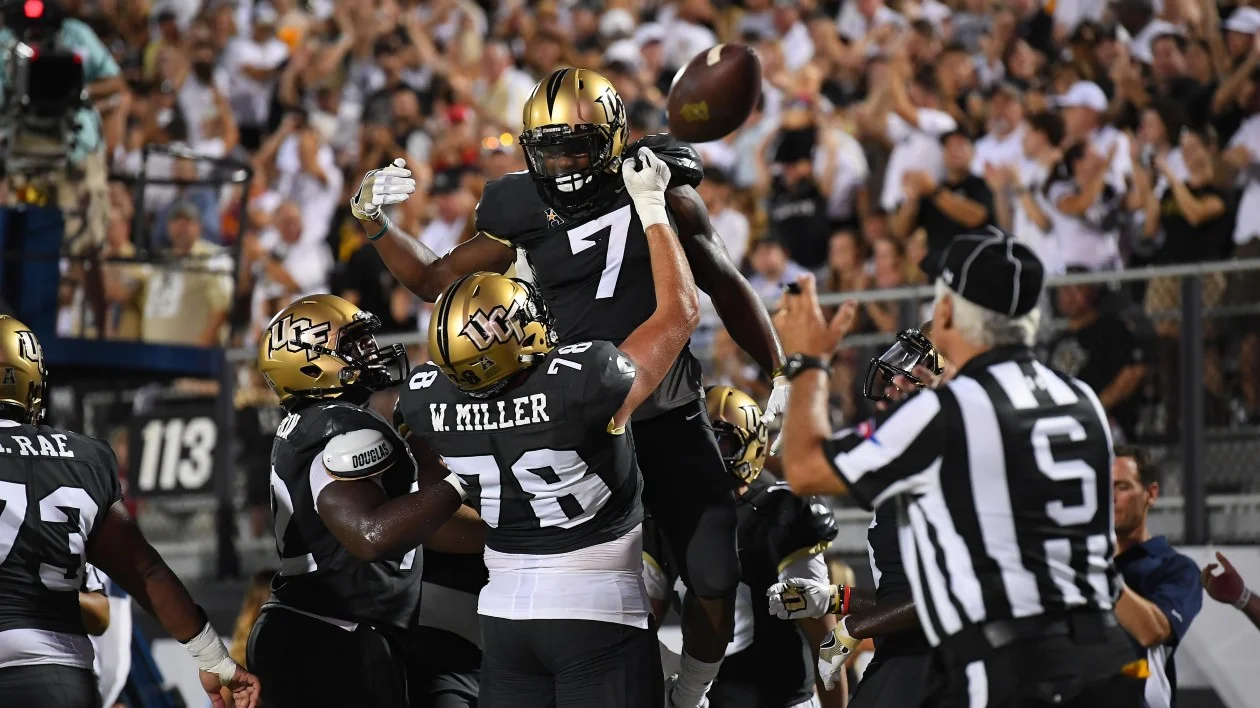As the college football world tears itself down and reconstructs its history into multiple super conferences, the Big East battles in thick competition to expand and hold on to current members. The Big East has its fingers crossed with the hope that their football program doesn’t continue its losing ways, extending friendship to schools with much promise.
These schools include high-profile Boise State and the inconsistent Conference USA squads of Houston, Central Florida and SMU. Can these schools reshape the Big East image or will mediocrity continue?
The BCS buster. The guys with the blue football field in Boise, Idaho. Wait. Where?
When Boise State burst onto the scene in 2006, no one ever expected they’d have the lasting power they have had the past six years. Under head coach Chris Petersen, the Boise State Broncos have been ranked in the Top 15 five out of the past six seasons. However, a consistently weak schedule has kept the team at a far distance from reaching a national title.
Now is the time for some street cred. Being a part of an automatic-qualifying conference, rather than the WAC or Mountain West, would be the answer to the thousands of Boise State fans’ prayers. Right?
Well, for the time being, yes. The Broncos have the chance of a lifetime if they accept the Big East’s invitation. They would be the heavy hitters for a struggling Big East. They are a football program that has gone undefeated three out of the five past seasons.
In 2013, the Bowl Championship Series will sit down and select which superconferences should play their game, those who will receive an automatic-qualifying bid to a BCS bowl. Boise State may be the ones who keep the Big East in good standing.
But for how long?
Here comes the sleeping giant. The second largest school in the nation that features one of the most inconsistent teams in college football. Led by head coach George O’Leary, UCF has been a staple within Conference USA, capturing two conference championships since the creation of a title game in 2005.
By the end of next week, UCF will have either accepted their Big East invitation or denied it.
Step One. Accept.
If UCF ever hopes to progress in college football, the realignment of the Big East is key to their success. As part of a Central Florida community that is smack-dab in the middle of the largest recruiting hot spot, UCF has an opportunity to push its program over the edge. Hopefully this push comes with a BCS supporting cast, one that can promote UCF’s up-and-coming image and also convince these top star athletes to join such a program.
Along with a prime-time location, UCF holds an already bitter rivalry with the University of South Florida. The War on I-4. The two teams have clashed four times in the past with the USF Bulls winning all four. In each of those battles, over 45,000 fans were in attendance. 11,500 more fans than Boise State’s Bronco Stadium can hold. With such an enticing war at hand, fans can expect a brutal fight whenever these two teams meet, a game that can renew a potential big-stage rivalry.
Step Two. Win.
After securing their first bowl game in history against the Georgia Bulldogs and being ranked as a first at №25, UCF has truly disappointed fans this season. QB Jeff Godfrey has had a tremendous sophomore year but has struggled to put points up on the board for a 4–5 team that holds a 2–3 record in conference play. Many critics believed the sleeping giant had finally woken up, primed and ready to take the BCS by storm.
But maybe the giant is trying to find its way home. The Big East.
For now, Boise State is the big brother. The one who can run faster, lift heavier weights and pick on the little ones whenever he pleases. But UCF isn’t so little anymore. He’s picking up steam, playing hungry everyday, trying to best his big brother when the time is right.
UCF. That time is coming soon. And when it does come, show your big brother who’s boss.


